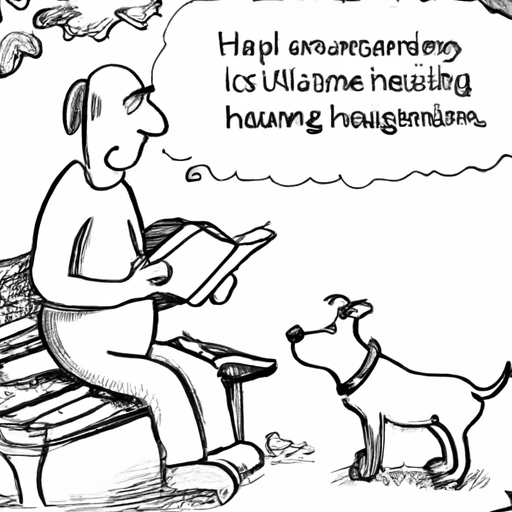Understanding the Canine Mind
You’ve probably looked into your dog’s eyes and wondered what they’re thinking. Do they see you as a parent, a friend, or a leader of their pack? Researchers have been delving into the canine mind, and what they’ve found might surprise you.
Your dog’s thoughts about you are influenced by their breed, age, experience, and personality. But generally, dogs see humans as their family. They understand us in ways that other animals cannot.
The Bond Between Dogs and Humans
This bond between dogs and humans is not just based on need or dependency. It’s much deeper than that. Many studies have shown that dogs are capable of love and affection, just like humans.
-
The Love Hormone: Just like humans, dogs release oxytocin, the ‘love hormone’, when they interact with their loved ones. This hormone helps to strengthen the bond between you and your furry friend.
-
Empathy: Dogs can read human emotions. They can tell when you’re happy, sad, or stressed. This ability to empathize makes them exceptional companions.
-
Communication: Dogs have learned to understand human language. They can recognize words, tone of voice, and even your body language.
How Dogs See Their Human Caregivers
Here’s an interesting fact. Dogs don’t necessarily see us as their ‘masters’. Instead, they see us as members of their pack. They understand that we have a different role, but they don’t see us as superior or inferior.
As a caregiver, you provide for your dog’s needs – food, shelter, safety. In return, your dog gives you unconditional love and loyalty. This relationship is a partnership, a bond built on mutual respect and love.
Nurturing Your Relationship With Your Dog
Building a strong relationship with your dog involves understanding their needs and behaviors. Here are some tips to help you strengthen your bond:
- Spend Quality Time: Spend time playing, walking or just cuddling with your dog. These shared experiences create strong emotional connections.
- Train with Positive Reinforcement: Dogs respond well to positive reinforcement. Reward good behavior with treats, praise, or play.
- Provide for Their Needs: Make sure your dog has a balanced diet, regular exercise, and routine vet check-ups.
Here is a simple table to illustrate this:
| Needs | How to Provide |
|---|---|
| Balanced Diet | High-quality dog food, occasional treats |
| Regular Exercise | Daily walks, playtime |
| Routine Vet Check-ups | Regular vet visits, vaccinations, flea and worm treatments |
FAQs
Q: Do dogs understand when we talk to them?
A: Yes, dogs can understand certain words and phrases, and they can also read our tone of voice and body language.
Q: How do dogs show their love for humans?
A: Dogs show their love through actions like wagging their tail, licking, and wanting to spend time with us.
Q: Can dogs feel the same emotions as humans?
A: Dogs can feel basic emotions like joy, fear, anger, disgust, and love. However, they may not feel complex emotions like guilt or shame.
Q: Are dogs loyal because they depend on us for food and shelter?
A: While dogs do depend on us for their basic needs, their loyalty goes beyond that. They form emotional bonds with their human caregivers and see them as part of their pack.



